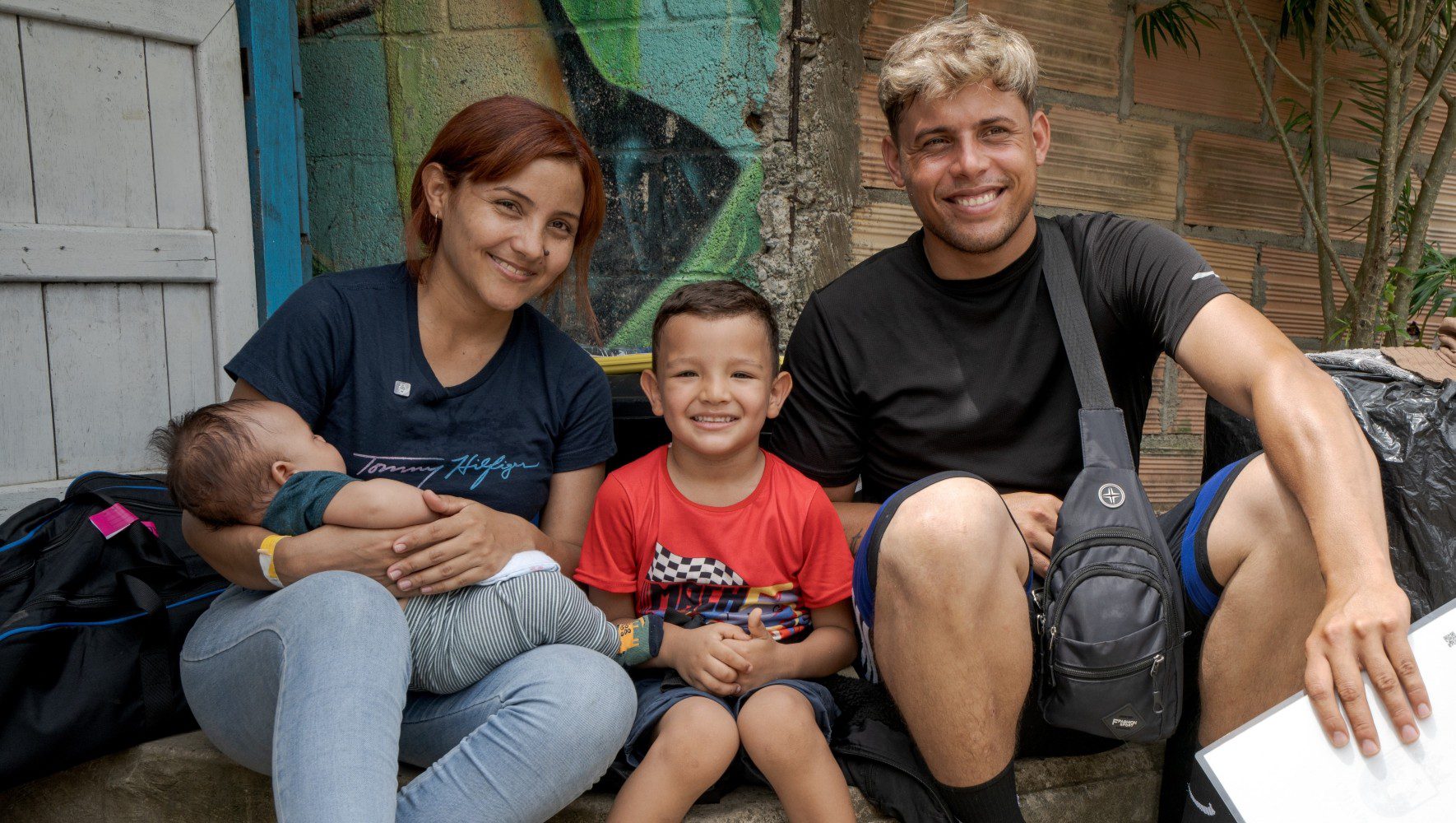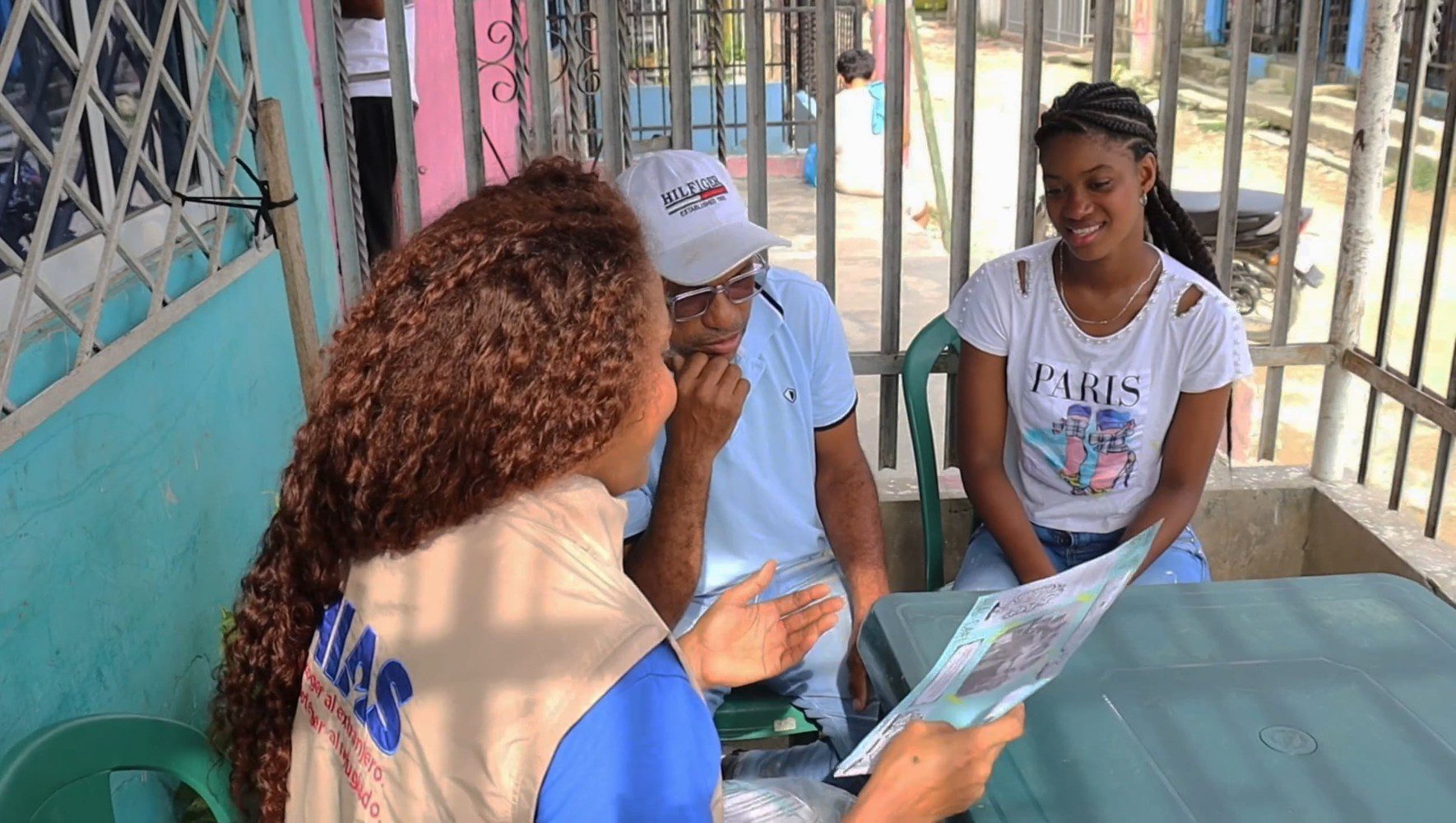'Everything Is Different': One Refugee's Journey Out of Extreme Poverty
By Max J. Rosenthal, HIAS.org
Mar 10, 2020
José Miguel Palma has achieved his dream.
Growing up in Tumaco, Colombia, amid an armed conflict, he knew he wanted to learn a profession and support his family. Even after he fled to Ecuador as a teenager and spent years struggling to make ends meet, he held onto that goal. Today, with the support of HIAS’ team in Ecuador, José Miguel is a resident architect for a construction company in the city of Guayaquil.
“My life has changed completely from when I arrived up to now,” he recently said in a video recorded by HIAS. “Everything is different.”
José Miguel, now 27 years old, first arrived in Ecuador in 2010 along with his mother and sister. The family long knew they had to leave their hometown, where armed groups had committed atrocities and killed hundreds of people. But they stayed just long enough for José Miguel to finish his education. The day after he graduated high school, they escaped.
They eventually landed in Guayaquil, Ecuador’s largest city, hoping to find safety and solid job prospects. Instead, they faced discrimination, a lack of job opportunites, difficulties accessing services, and other problems. José Miguel worked odd jobs to help support the family, but they still struggled to cover basic needs. Money only got tighter when his girlfriend fled Colombia and joined the Palma family in Ecuador.
It wasn’t until 2015 that things started to change. José Miguel, who now had a child, got a job at a construction firm and became interested in architecture. He also learned about HIAS, whose staff in Ecuador helps support refugees like him.
When José Miguel won a place in the architecture program at the Public University of Guayaquil, HIAS selected him for a DAFI Scholarship, a program through which UNHCR, the U.N.’s refugee agency, gives refugees money to cover higher education costs and basic needs. Without the scholarship, full-time study would have been impossible; José Miguel had to quit his job to make time for school, and supporting his family — now including another child — was tougher than ever. DAFI provided money for books, transportation, and subsistence.
HIAS also placed José Miguel and his girlfriend, Ingrid, in the Graduation Model, a program designed to give the most vulnerable refugees business training and seed money. Through the program, José Miguel’s girlfriend started a business offering hairdressing services and was able to make enough money to cover the family’s basic needs on her own. Within 18 months, they had escaped extreme poverty.
Academics can pile stress on refugees that are already dealing with uncertainty and the struggle to survive. HIAS provides DAFI Scholarship students with psychological support to help manage that stress, and José Miguel said the help of psychologists was crucial to his success.
“The psychosocial area of HIAS was always accompanying me,” he said. “When I felt down, they were always encouraging me to continue and not give up.”
José Miguel is now a fully qualified architect overseeing the construction of a new building in Guayaquil — and even considering getting a master’s degree. His salary of $500 a month, along with Ingrid’s income from her hairdressing business, is enough to take care of his family. The couple’s two children are in school. It is a far cry from the hardships of just a few years ago.
With so much success behind him, José Miguel is confident about whatever comes next. “I cling to my dreams,” he said, “and although sometimes it costs a lot, I fulfill them."



